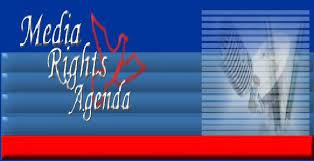Nigeria’s Media Rights Agenda (MRA) has called on the Federal Government and the National Broadcasting Commission (NBC) to take advantage of the opportunity presented by this year’s World Radio Day to undertake a comprehensive reform of the broadcast sector to entrench broadcasting freedom in Nigeria and enable radio in particular to achieve its full potential.
In a statement issued in Lagos on Monday on the occasion of the 2023 World Radio Day themed “Radio and Peace”, MRA noted that despite advancements in information and communications technologies (ICTs), which have provided societies with many different options for public communications, radio remains the most sought-after and effective medium of mass communication in many parts of the world, particularly during periods of conflict and emergencies.
The MRA’s Communications Officer, Mr. Idowu Adewale, noted that: “Radio has long been recognized as a vital tool for promoting peace, stability and conflict resolution. In times of crisis, it provides a source of reliable information and can help to dispel myths and misinformation that can fuel or aggravate conflict.”
He, however, observed that the strangulating regulatory environment for the broadcast media in Nigeria was not only stifling innovation and creativity in radio broadcasting, but is also destroying public trust in the radio as a reliable and independent source of news and information.
Mr. Adewale called on the Federal Government and the NBC to work with other stakeholders in the radio broadcast sector to enhance the use of radio as a means of disseminating information that would help foster peace, especially in the Nigerian context where violent conflicts and unrests, which have become quite common amid the scarcity of fuel, the inadequate supply of electricity, the challenges posed by the currency re-design as well as other crises rocking the country.
Highlighting the importance of radio in fostering peace and stability, he said: “Radio continues to be a vital source of information and news for millions of people around the world, especially in remote and rural areas where other forms of media are not easily accessible. It remains a crucial tool for safeguarding freedom of expression and promoting cultural diversity, and it is a vital platform for promoting peace and tolerance.”
Mr. Adewale therefore urged all stakeholders to use radio as a tool to promote peace and stability, stressing that “We believe that radio has the power to bring people together, promote dialogue and understanding, and help bring an end to conflict. It is up to us to make sure that this important medium is used in a manner than can enable it to achieve its full potential.”
UNESCO’s 36th General Conference on November 3, 2011, proclaimed February 13 World Radio Day, to remember the unique power of radio to touch lives and bring people together across every corner of the globe.
GIK/APA


